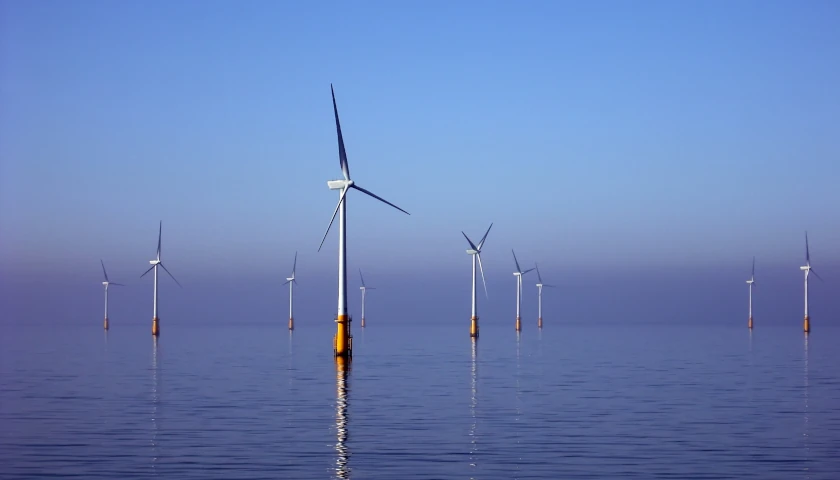by Morgan Sweeney
As President Joe Biden’s presidential term comes to a close, the administration is bearing down on its goal of 30 gigawatts of offshore wind energy and 15 gigawatts of floating offshore wind by 2035.
As of 2021, the administration had approved two commercial-scale offshore wind projects, and seven have been approved within the past year.
As of 2023, only seven offshore wind turbines were providing power to American homes, according to the Center for Strategic and International Studies. This year has seen the addition of the 12-turbine South Fork Wind farm off the coast of New York and initial operations from Vineyard Wind 1 off the coast of Massachusetts.
Ten turbines delivered power to the grid until a test turbine broke and shed pieces of a 115,000-pound, 350-foot wind blade into the sea. Power generation and blade installation have been halted as debris continues to wash up on the shores of Nantucket and Martha’s Vineyard.
It’s been a busy summer for Virginia’s largest utility, Dominion Energy. This week, it announced the installation of the 50th monopile, or turbine foundation, of the long-anticipated Coastal Virginia Offshore Wind project and the purchase of another 176,500-acre lease area east of the project.
“Our on-time, on-budget Coastal Virginia Offshore Wind project proves that regulated offshore wind works in the United States,” said Robert Blue, Dominion’s president and chief executive officer.
The company has been apt to highlight that the project is on time, especially after some environmental groups challenged it in court, alleging that project approval was rushed and would endanger right whales.
The plan is to continue construction on the project – breaking for right whale migration season – to finish in 2026.
Dominion bought the second lease area for $17.7 million, or $100 per acre.
“Offshore wind is critical to our all-of-the-above approach to meet the unprecedented growth of our customer electric demand over the next decade,” Blue said.
If developed, the lease area could add another 2-4 gigawatts of offshore wind energy capacity to the 176 turbines planned for the current project, according to the Bureau of Ocean Energy Management.
“Winning this lease area gives us another low-cost option to meet that growing [electric] demand while providing our customers with reliable, affordable and increasing clean energy,” Blue added.
The company also acquired Kitty Hawk North Wind in July – another 40,000-acre lease off the coast of Virginia Beach – from renewable energy company Avangrid. The $160 million transaction paid for the lease and reimbursed Avangrid $43 million for initial development. Dominion will rename the site CVOW-South, and Avangrid will continue its plans for Kitty Hawk South Wind.
“With electric demand in our Virginia territory projected to double in the next 13 years, Dominion Energy is securing access to power generation resources that ensure we continue to provide the reliable, affordable, and increasingly clean energy that powers our customers every day,” Blue said.
In April, Dominion also launched Charybdis, the first Jones Act-compliant offshore wind turbine installation vessel that will be very active in CVOW installations.
– – –
Morgan Sweeney is a staff writer covering Virginia and Maryland for The Center Square. Morgan was an active member of the journalism program as an undergraduate at Hillsdale College and previously freelanced for The Center Square.
Photo “Offshore Wind Farm” by Andy Dingley CC BY-SA 3.0.









